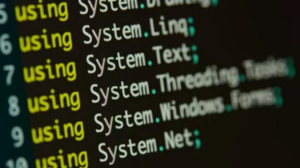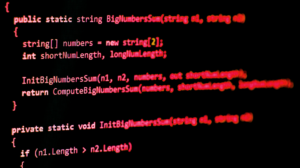As a seasoned tech writer, I’ve delved deep into the realm of modern programming languages. In today’s fast-paced digital landscape, staying abreast of the latest trends in coding is paramount. From Python’s versatility to JavaScript’s ubiquity, the evolution of programming languages has revolutionized the way we interact with technology. In this article, I’ll explore the dynamic world of modern programming languages, shedding light on their significance in shaping the digital future. Whether you’re a seasoned developer or a coding enthusiast, understanding the nuances of these languages is key to staying ahead in the ever-evolving tech industry.
Modern Programming Languages
From Early Beginnings to Modern Era
 Programming languages have evolved significantly from their early beginnings to the modern era. Initially, machine language, made up of binary code, was the only way to instruct computers. Assembler languages followed, allowing programmers to use mnemonic codes. This evolution led to the development of high-level programming languages like Fortran, which introduced more human-readable syntax.
Programming languages have evolved significantly from their early beginnings to the modern era. Initially, machine language, made up of binary code, was the only way to instruct computers. Assembler languages followed, allowing programmers to use mnemonic codes. This evolution led to the development of high-level programming languages like Fortran, which introduced more human-readable syntax.
Throughout history, several key milestones have shaped the development of programming languages. The creation of languages such as C and C++ played a crucial role in enhancing programming capabilities. Subsequently, languages like Java and Python emerged, offering versatility and ease of use. More recently, languages like Swift for iOS development and TypeScript for web applications have further diversified the programming language landscape.
Characteristics of Modern Programming Languages
Readability and Maintainability
 When it comes to modern programming languages, readability and maintainability are crucial aspects. I’ll explain why. Modern languages like Python prioritize readability, making it easier for developers to write clean and understandable code. Clear syntax and good documentation enhance the readability of the codebase, aiding in quicker bug detection and easier collaboration among team members. In contrast, languages with complex syntax can lead to code that is difficult to read and maintain over time.
When it comes to modern programming languages, readability and maintainability are crucial aspects. I’ll explain why. Modern languages like Python prioritize readability, making it easier for developers to write clean and understandable code. Clear syntax and good documentation enhance the readability of the codebase, aiding in quicker bug detection and easier collaboration among team members. In contrast, languages with complex syntax can lead to code that is difficult to read and maintain over time.
Efficiency and performance are key considerations when evaluating modern programming languages. Let’s delve into why these aspects matter. Modern languages are designed to offer optimal performance while using system resources efficiently. For example, languages like Rust are known for their focus on both safety and speed, making them ideal for systems programming where performance is critical. Additionally, compiled languages like C and C++ are highly efficient in terms of memory management and execution speed.
Popular Modern Programming Languages
JavaScript and Its Ecosystem
 When it comes to modern programming languages, one cannot ignore JavaScript. It has evolved from being primarily used for front-end web development to now being a versatile language that powers both client-side and server-side applications. JavaScript’s ecosystem, including frameworks like React and Angular, has made it a go-to choice for web development due to its flexibility and extensive library support. Staying current with JavaScript and its ecosystem is essential for developers looking to build interactive and dynamic web applications efficiently.
When it comes to modern programming languages, one cannot ignore JavaScript. It has evolved from being primarily used for front-end web development to now being a versatile language that powers both client-side and server-side applications. JavaScript’s ecosystem, including frameworks like React and Angular, has made it a go-to choice for web development due to its flexibility and extensive library support. Staying current with JavaScript and its ecosystem is essential for developers looking to build interactive and dynamic web applications efficiently.
Python stands out as one of the most versatile and beginner-friendly modern programming languages. Its readability and clean syntax make it an excellent choice for a wide range of applications, including web development, data analysis, artificial intelligence, and more. With robust frameworks like Django and Flask, Python enables rapid development and prototyping of applications. Understanding Python and its versatility is crucial for developers seeking to create scalable and efficient solutions in various domains.
Go and Rust for System-Level Programming
For system-level programming, languages like Go and Rust have gained popularity in recent years. Go, also known as Golang, offers a simple and efficient way to build concurrent and scalable systems, making it a preferred choice for cloud-native applications. On the other hand, Rust focuses on safety and performance, providing memory safety without sacrificing speed. Developers looking to create high-performance, reliable, and secure system-level applications should consider exploring Go and Rust for their projects.

